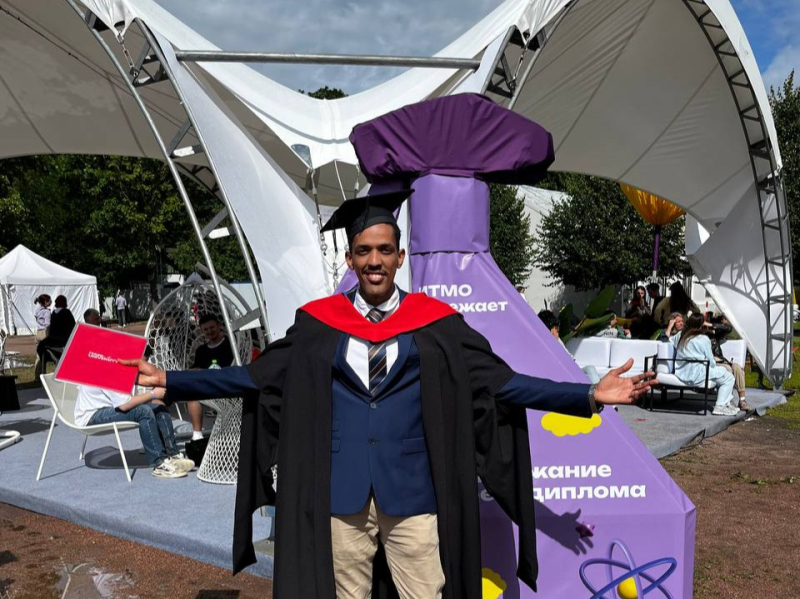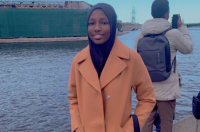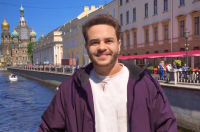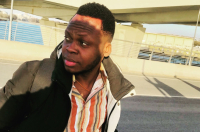Please introduce yourself to our readers.
I am Abubakr Mustafa, an international Master's graduate from Sudan. I am a chemical engineer by education and after finishing my Bachelor’s degree I worked in three different companies before traveling to St. Petersburg to study in the Industrial Ecology Master's program at ITMO.
That’s great! Tell us something about your country.
My country, Sudan, is the second-biggest country in Africa, located in the northeast. Our native language is Arabic, but we use English as the main language on many occasions, such as in academia and politics. My country is top in the production of gum arabic in the world. It is also one of the largest producers of gold and copper. Agriculture is also my country's top resource, thanks to the river Nile. The most beautiful tourist attractions in Sudan are Marra Mountain, Dinder National Park, and the Nubian (Al-Bajrawiya) pyramids.
And where did you study before joining ITMO?
Before joining ITMO, I studied for my Bachelor’s degree at the University of Khartoum, which ranks as the first university in Sudan.
What are your plans now that you've graduated?
I want to build on my Master's thesis as a PhD student at ITMO and continue looking for new environmental products, as well as develop methods to use them in water treatment and water supply.
I am looking for a scholarship to study for my PhD, but for now, I will start to study the Russian language at ITMO’s Foundation Program.
Why did you choose ITMO?
I am a scholarship winner and in the list of universities, only ITMO had the project of my desire. Having said that, if I'm given another chance, I will choose ITMO again for sure.
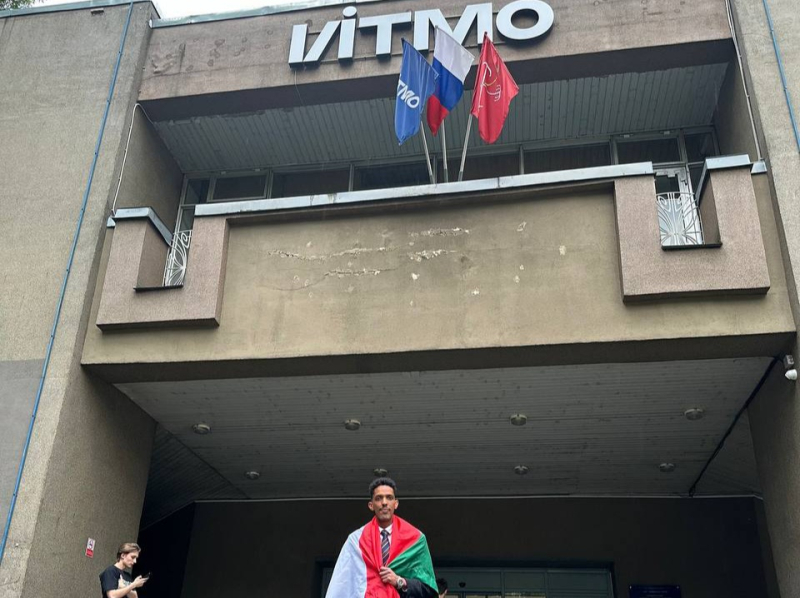
Abubakr at ITMO. Photo courtesy of the subject
How would you describe your life in Russia?
In Russia, you live with very helpful people. You can always find people who help you with everything you need. The most beautiful thing about Russia is its great history. When I came to St. Petersburg, the Russian language was the first obstacle for me to communicate with people, but the situation now is much better thanks to numerous practice sessions with my Russian friends. The winter season is difficult not just for me but anyone who comes here from Africa. I arrived in Russia on December 1, when the temperature was -15°C and in my country, it was about 30°C! It took me a lot of time to adapt to this big change in temperature.
How are you managing your finances?
During my studies, I worked part-time to cover my needs. Most international students need to work during their studies to cover their finances.
What would you say is the monthly budget for an international student in St. Petersburg?
I don't have a precise number in mind, but I think it depends on the student and their lifestyle.
What do you think about St. Petersburg as a city?
Life in St. Petersburg is pretty good in terms of its quality. Before coming to this city I knew a lot about the major attractions of the city such as the Hermitage, the Gazprom Arena, and the phenomenon of white nights.
Which mode of transport do you frequently use here?
I use the metro, but in summer I like to take the bus because I can look at the beauty of St. Petersburg.
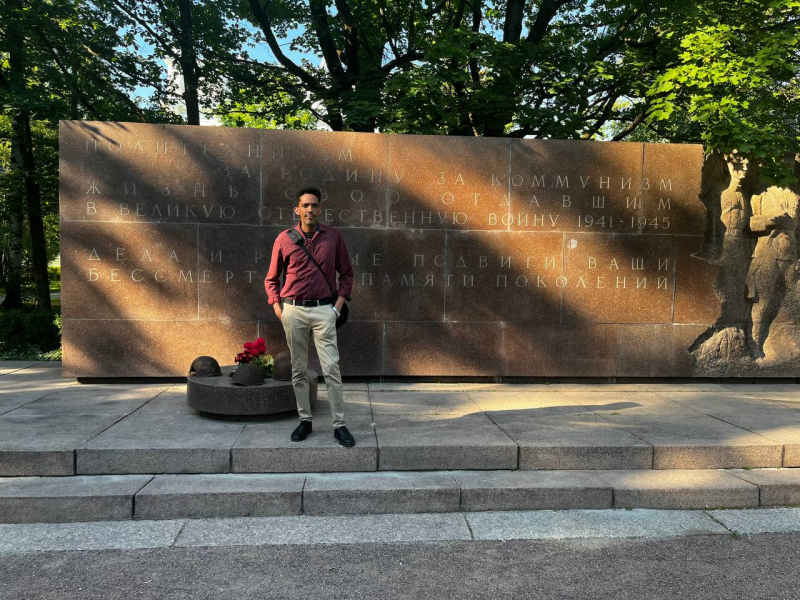
Photo courtesy of the subject
Do you have any advice for future PhD students at ITMO?
PhD students at ITMO should be ready to do anything and everything. Doing a PhD will develop the student further by adding more experience through internships and practical work.
Do you want to add anything else?
Sharing my experience as a student and a graduate motivated many young students from my country to pursue higher studies at ITMO. Through this interview, I hope more students will be inspired. That would be my biggest pleasure.
